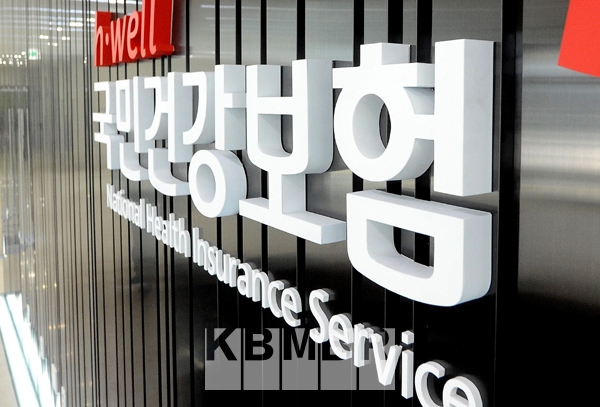Korea’s state health insurance system recorded a surplus for three years in a row, with accumulated reserves reaching a record 28 trillion won ($21 billion).

Both income and expense increased year-on-year, but income grew more significantly. After Covid-19, hospital-level medical institutions recovered, but neighborhood clinics experienced slowing use by patients.
The National Health Insurance Service (NHIS) said Wednesday that the health insurance finances in 2023 recorded a surplus of 4.12 trillion won on a cash flow basis, and the accumulated reserves reached a record 27.9 trillion won, the largest ever, recording a surplus for the third consecutive year.
Specifically, income and expenditure increased year-on-year in 2023, but the increase in income was larger than the growth in expenditure, improving its fiscal balance.
Total revenue increased by 6.13 trillion won, or 6.9 percent, due to increased workplace insurance premiums, government support, and interest income. Government support in 2023 was estimated at 11 trillion won, an increase of 471 billion won year-on-year.
Thanks to the strategic management of accumulated reserves despite the unstable financial market environment, interest income recorded a return rate of 5.0 percent, 0.95 percentage points higher than the initial target of 4.05 percent, helping to achieve a profit of more than 1 trillion won for the first time.
Total expenditure increased by 5.63 trillion won (6.6 percent) year-on-year but at a slower pace than the growth rate of 2022 (9.6 percent).
By age, the growth rate of insurance benefit expenses for subscribers 65 and older (13.0 percent) was higher than that of the under-65 subscribers (7.9 percent) after the pandemic. However, hospitalizations and hospital visits showed a slower increase than in 2022, owing to increased public attention to disease prevention and enhanced personal hygiene.
By disease, non-critical illnesses showed a slowdown in hospital visits and stays compared to 2022, while critical illnesses requiring medical treatment showed a recovery of healthcare use.
In particular, the reimbursement for four major severe diseases -- cancer, cerebrovascular disease, heart disease, and rare and incurable diseases -- showed a year-on-year increase of 10 to 20 percent or more.
By type of treatment, hospitalizations with a high share of severely ill patients showed higher hospitalization costs than in 2022 as the number of hospitalization days recovered.
On the other hand, outpatient visits at the clinic level and below tended to be slower than in 2022, as the number of hospitalization days slowed down due to the continuous strengthening of personal hygiene management, such as hand washing and mask-wearing, after experiencing Covid-19.
Despite the surplus of the past three years, NHIS said it is difficult to ensure financial sustainability due to economic uncertainty and demographic changes.
NHIS noted that although some economists expect business recovery after Covid-19 thanks to semiconductors and exports, others believe it is difficult to predict the recovery due to slowing consumer sentiment and unstable global conditions amid high inflation and prolonged high-interest rates.
Also, as Korea enters a superaged society in 2025, with more than 20 percent of the total population aged 65 and over, the rise in the elderly population is expected to continue to increase healthcare expenditures while the decline in the productive population due to the declining birthrate and population aging is expected to slow down the growth of insurance premium income, creating financial uncertainty.
NHIS emphasized in this regard that it would contribute to improving people's health by expanding support for essential medical care through the government's “Second National Health Insurance Comprehensive Plan” while promoting measures to improve the financial sustainability of health insurance.
"We will continue to promote spending efficiency and improve the operation and management system with transparency and reliability to maintain the health of insurance finance," NHIS President Jung Ki-suck said.

